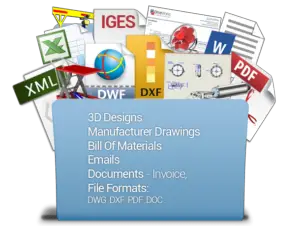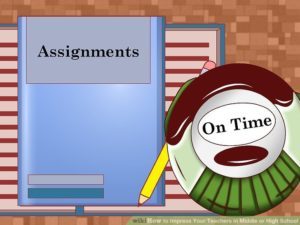Throughout our formal education process, whether in high school or college, it is very common that at some point we are assigned some project related to the research of a particular subject. Unfortunately, due to a number of factors related to deficiencies in our educational training, we often have no idea what to research or how to start the process.
As you can imagine, not knowing how to start developing the research project can lead to feeling anxious, distressed, or pressured to fully comply with the assignment. That is why, in this issue, we want to share some useful tips that we are sure will help you, or at least will guide you, in a good part of this type of educational experience:

Choose a topic for your research. This topic should be something that you like a lot or that you find very interesting to share. Take your time -there is no hurry at this stage- and choose a topic from which you have enough information or, failing that, you know where to find data to start developing it.
Start collecting a lot of information. For this, you can search in books, encyclopedias, web pages, among others. You can also proceed to interview specialists or experts on the selected topic, etc. It is very useful that you take some notes, but try NOT TO COPY LITERALLY.
Make a script or plan of what your research will be. This step is fundamental because you must select the information collected, extract the most important, order and organize the content in chapters or sections. A good script will also ensure a good job.
Choose the format to be presented. In this step, you have to choose between a physical format (on paper) or a digital format (Word, PDF, PowerPoint files, etc.). You can write it by hand or transcribe it to a computer, depending on your preference, and deliver it in print or maybe in a slideshow, publish it in the weekly school magazine, etc. Both types of formats are valid and complement each other.

While content is the most important, how to present that content is also important. At this point, you should think about whether your work will carry illustrations, graphics, or any other multimedia item (audio or video files).
Both types of formats are valid and complement each other. While content is the most important, how to present that content is also important. At this point, you should think about whether your work will carry illustrations, graphics, or any other multimedia item (audio or video files).
Whatever format you choose, you have to write it first. To avoid complications, just follow the steps in the order you set in your script or plan. Your explanations should be simple and easy to understand.
Check spelling, take care of established margins, number all pages, and so on. At the end, it is very convenient to include a bibliography (or in its absence, an infography will be okay), with the list of your sources of information; books, magazines, catalogs, journalistic or research articles, websites, etc.

Organize your time -at this stage, you should be careful with the measurement of your available time- so that you can meet the deadline. Eventually, you can ask your parents, friends, or other family members for help, but remember that it is your research work, not theirs.
After all, the most important thing is not only the RESULT but the WHOLE PROCESS; research, organization, and the elaboration of the work itself.
To conclude, we hope these simple tips can help you, whatever the subject or the nature of your research project is. Always remember the old premise of teachers with a true vocation to teach: “Without mistakes, there is no learning”. To learn, it is necessary to err and then correct on the basis of such a mistake.
